Sierra Tucson offers effective, comprehensive treatment for individuals in relapse from prescription painkiller addiction.
Understanding Treatment
Understanding painkiller addiction treatment & long-term sobriety
Developing an addiction to prescription drugs can be a devastating experience, and overcoming this problem is a tremendous achievement. Having the courage to face a problem as daunting as prescription drug addiction, and possessing the strength and dedication to complete treatment and make the changes that lead to recovery, are impressive characteristics that should be honored and celebrated.
Unfortunately, victory over prescription drug addiction is not a one-time accomplishment. As individuals learn while they are in treatment, recovery is an ongoing process that requires continued focus and effort. Avoiding triggers, dealing with stress, and resisting the urge to once again abuse these dangerous substances are among the many challenges that demand continued vigilance for individuals who are in recovery.
For those who are recovering from prescription drug addiction, the difficulty of this effort may be magnified due to the fact that the substances upon which they had become dependent are both prevalent and, when used appropriately, extremely beneficial. Unlike heroin and many other illegal substances, prescription drugs are widely advertised, easily accessible, and promoted by medical experts. When one has worked to overcome an addiction to prescription drugs, remaining in recovery and avoiding relapse requires considerable dedication and discipline.
With an understanding that addiction is a disease that can be managed but not cured, effective treatment programs place great emphasis on helping individuals to make the lifestyle changes and develop the skills and strategies that will support their efforts to remain in recovery long after they have transitioned out of care. When a person is treated for an addiction to prescription drugs, the therapeutic and educational components of their treatment will address the unique pressures that are associated with maintaining recovery from this type of chemical dependency.
If a person who completes treatment for prescription drug addiction fails to follow through with the continuing care recommendations of their program, which may include a step-down level of care, participation in a recovery support group, and other options, they may jeopardize their continued health and recovery.
Of course, relapsing into prescription drug abuse is not necessarily evidence that a person has not been working hard enough or has ignored the advice of the experts who helped them achieve initial success. Relapse is not evidence of a character flaw or insufficient willpower, and suffering from a relapse does not mean that a person’s time in treatment was wasted or that the individual has somehow failed.
Though unfortunate, relapse is far from uncommon among those who have completed treatment and achieved time in recovery from prescription drug addiction. The good news is that, if a person applies the lessons they learned while in treatment, they can prevent a short-term relapse from pulling them into the downward spiral of long-term drug abuse and addiction.
Why Do People Relapse?
Reasons why people relapse from prescription painkiller addiction
As indicated in the previous section of this page, people who are recovering from an addiction to prescription drugs face many obstacles as they walk the path of recovery. From seemingly harmless minor setbacks to significant complications in one’s personal and/or professional life, each obstacle poses a unique threat to the individual’s continued sobriety. The following are examples of the events and experiences that can push an individual into relapse:
- Experiencing an illness or injury that can be treated with a prescription drug
- Being in a social situation where others are using prescription drugs for recreational purposes
- Enduring overwhelming levels of stress
- Experiencing a setback at work or in school
- Developing an intense craving for prescription drugs
- Believing that one’s recovery has been so successful that one can abuse a prescription drug “just once” with no repercussions
- Suffering a personal loss such as separation, divorce, broken relationship, or the death of a loved one
- Being attacked, assaulted, or subjected to another type of trauma
Of course, the nature of life means that events and experiences such as the ones listed above rarely occur in a vacuum. Effectively dealing with threats to one’s continued sobriety often requires a person to handle multiple challenges and setbacks at once or in quick succession. Understanding that dealing with such challenges will be a normal part of life is an important part of effectively preparing oneself for long-term recovery.
Preventing Relapse
How to prevent prescription painkiller addiction relapse
The first step in preventing relapse is preparing for the triggers and challenges that will inevitably occur. The second step is realizing that preparation alone will never be enough, that mistakes will occur, and that no setback or slip-up is worth sacrificing the hard work that an individual has already put into their recovery.
Of course, just because preparation does not guarantee 100% success, this does not mean that a person should not dedicate ample time and effort to planning. The following are among the arrangements that a person can make to protect their continued recovery from prescription drug abuse:
- Take advantage of any continuing care programs, alumni services, or other recovery support opportunities that are offered by the treatment program that you attended.
- Participate in a recovery support group. Select a group that has a format and philosophy that aligns with your personal beliefs, and make a commitment to remain active in that group. Being accountable to others will help you to remain accountable to yourself.
- Develop healthy leisure pursuits. The time that you previously spent acquiring, using, and recovering from prescription drugs will need to be filled by something more productive. Less down time means you will have fewer opportunities to engage in self-defeating behaviors.
- Associate with positive, productive, and supportive people. One of the more challenging and also more important parts of recovery is cutting ties, or at least limiting the amount of time that you spend with, individuals who can undermine your sobriety.
- Practice healthy coping skills. Mindfulness, meditation, and other healthy stress-management techniques are most effective when they are used on a daily basis, not when they are ignored until a significant negative event occurs or until you begin to feel overwhelmed. Be proactive in your efforts to manage stress.
- Get help. There is no shame in asking for help, making an appointment with a therapist, or even entering an outpatient or residential treatment program again. Going to a doctor for an illness or injury is not a sign of failure or weakness; getting professional help for struggles with relapse should not be viewed in a negative light, either.
For more information about preventing relapse, or responding to relapse in a healthy and productive manner, please feel free to contact Sierra Tucson at your convenience. We look forward to answering all of your questions and helping you make the most informed decisions for your own recovery journey, or on behalf of a loved one.












